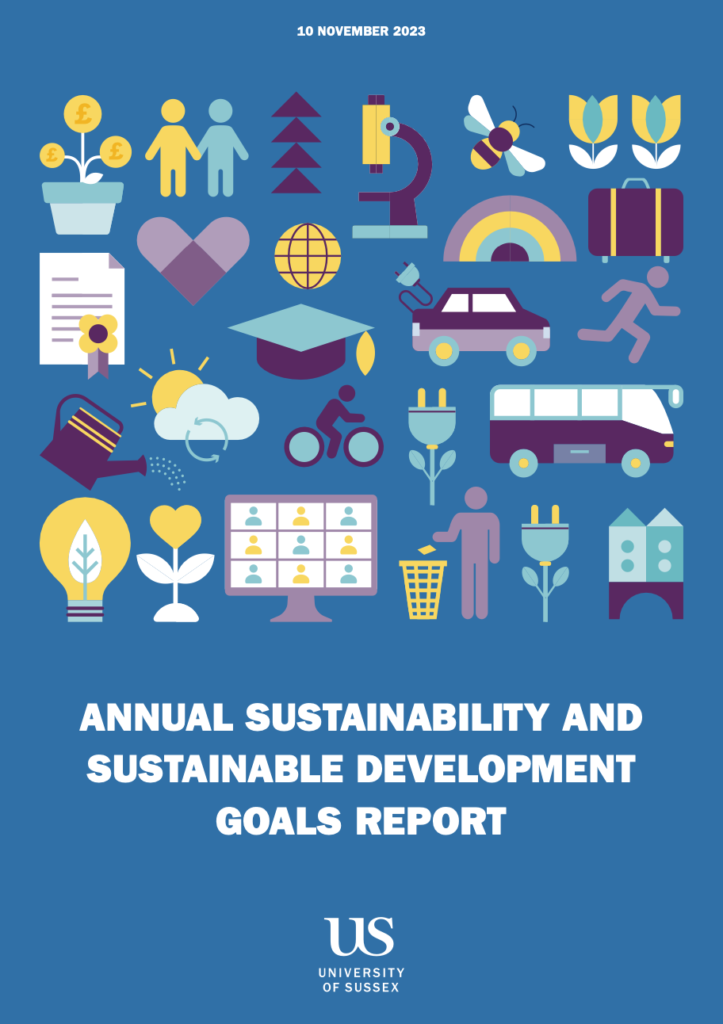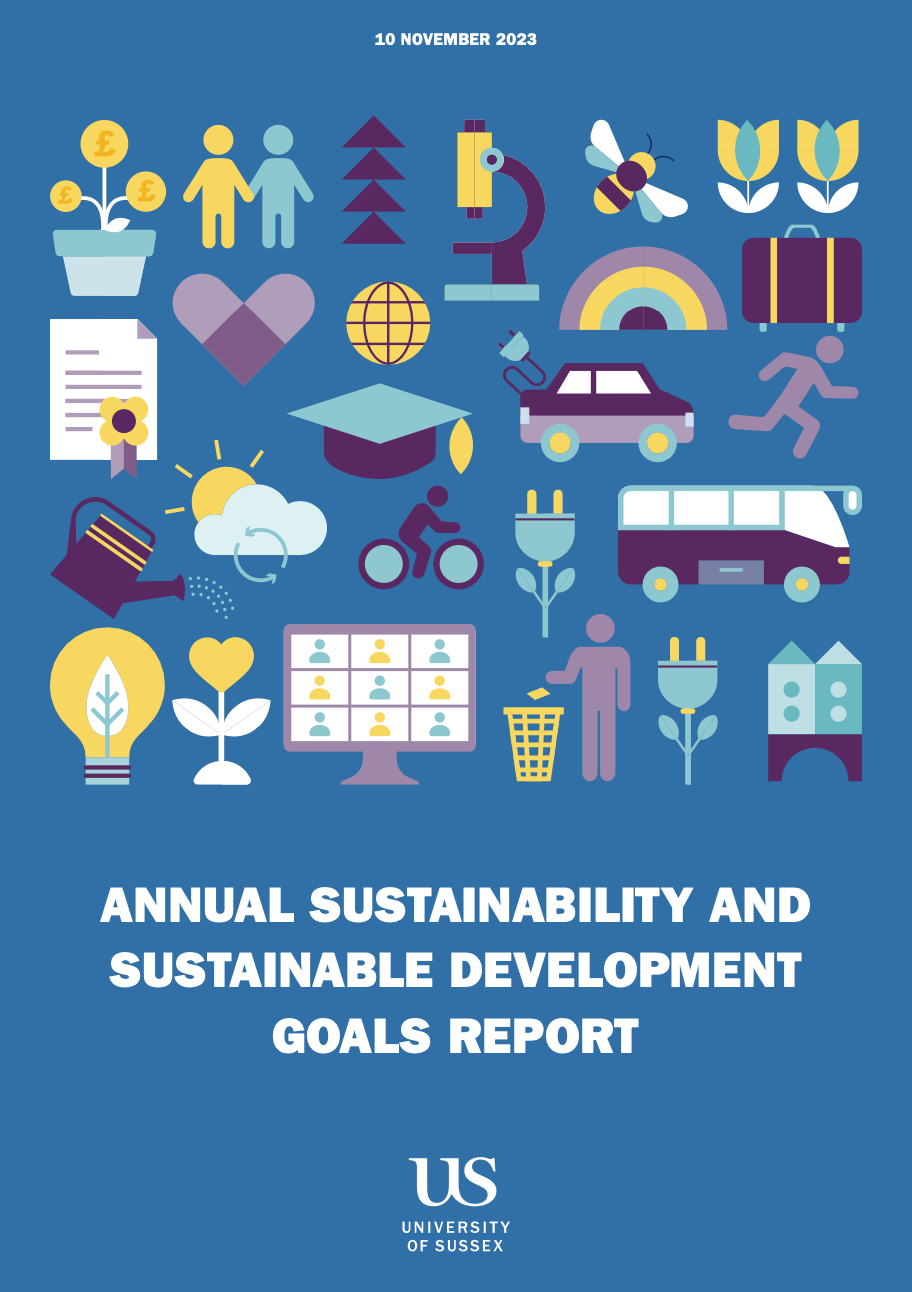The University of Sussex published its fourth Annual Sustainability and Sustainable Development Goals Report on 10 November. The report highlights this year’s work by the University and its students according to their contribution to each of the 17 UN Sustainable Development Goals (SDGs), as part of the vision “to be one of the most sustainable universities in the world.”
Key achievements noted include the variety of sustainability oriented degree programs and modules available, the launch of a new “Green Futures” event to encourage sustainable career pathways, and the integration of measures to tackle both the climate and cost of living crises.
The University also published a Biodiversity Strategy and Policy document in May, which focuses on two objectives: to achieve a biodiversity net gain; and to increase the percentage of the campus set aside for nature from the 2022 baseline of 38% to 42% by December 2027. This commitment resulted in Sussex winning a Green Flag award, for well-managed green spaces, for the seventh year running.
The new report’s foreword by Vice-Chancellor Professor Sasha Roseneil spotlights the University of Sussex’s position of 10th in the UK, and 49th worldwide, in the Times Higher Education Impact Rankings 2023, which assesses universities against the SDGs. With an overall score of 91.3, it’s true to say that Sussex does outperform many similar institutions. However, the new report fails to mention that the University has actually sunk in the rankings compared to 2022, when it achieved 7th in the UK and 37th internationally. The overall score has dropped nearly 2 points from 93.1 in 2022.

Regarding the drop, a university spokesperson said; “More universities than ever are now choosing to participate in the THE Impact Rankings, with an increase of 181 institutions in 2023 compared to 2022. This, combined with a new scoring methodology, were contributing factors for our slight lower position.”
More cherry-picked statistics are seen in boasts of achieving 100% in the areas of Sustainable Food and Education for Sustainable Development in the 2022/23 People & Planet University League. The report doesn’t include any reflection on the categorisation of the University of Sussex as “3rd class” in the same League, which puts Sussex only 87th in the UK. The foreword also includes several points repeated from previous annual reports, paraphrased slightly or with the year updated.
The Sustainability Team spokesperson pointed out that “Sussex continues to be ranked within the top 50 of over 1,500 universities across the world, which places us in the top 3.1% of published institutions in the THE Impact Rankings 2023. However, we know there is still more to do and we continue to identify and address areas for improvement to make Sussex a truly sustainable university.”
The University does transparently share relevant data. In addition to the annual report, a Performance Dashboard on the university website details environmental and socio-economic performance metrics beginning 2018. This data, which will soon be updated for 2022/23, includes total energy usage and carbon emissions, as well as financial information such as total university expenditure, research income, and the value of the Hardship Fund. Sussex also reports this data to HESA, the Higher Education Statistics Agency. For 2021/22, Sussex emitted 131,699 tonnes of carbon, calculated according to the Standardised Carbon Emissions Framework for Further and Higher Education (SCEF) developed by the EAUC. This methodology was adopted only last year, making comparisons to the base figure quoted in the original Sustainable Sussex Strategy – 100,670 tonnes of carbon in 2018/19 – difficult.
Sussex has sunk 12 places in the THE Impact Rankings since 2022
So, while Sussex is making huge steps in the right direction, the lack of clear and coherent reflection on year-to-year progress in each aspect of sustainable development leaves students wondering if it’s all to show. A more comprehensive review is needed, detailing whether the University is on track to meet the goals set out in the Sustainability Strategy published June 2021.

